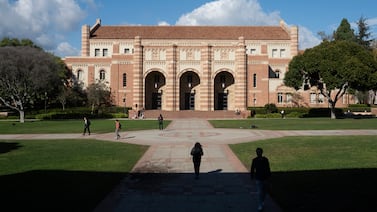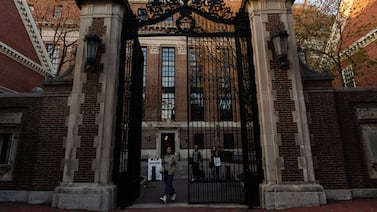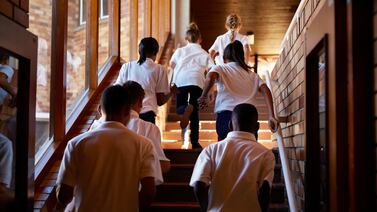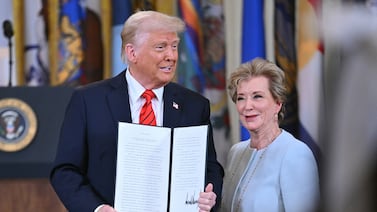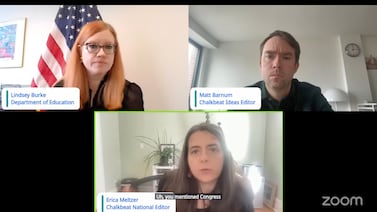An exchange between two education writers on the value of admitting students who need remedial support to selective universities like UCSD.
Not many more, according to a careful parsing of recent data.
Research suggests that a few snow days probably won’t set students back academically.
This could leave parents and policymakers in the dark on school performance.
He’s one of the only top Democrats talking about schools, but his track record is controversial
Officials are dismantling the Education Department but vowing to keep its programs. So what’s the point?
In a Q&A with Chalkbeat, Lindsey Burke, a Project 2025 author, tried to assuage concerns of parents of students with disabilities.
A Q&A with the Chalkbeat reporter who has chronicled the nation’s first ‘public Christian school’
Here’s what we know, don’t know, and need to know about American students' academic performance.
A roundup of interesting tidbits from the last month


